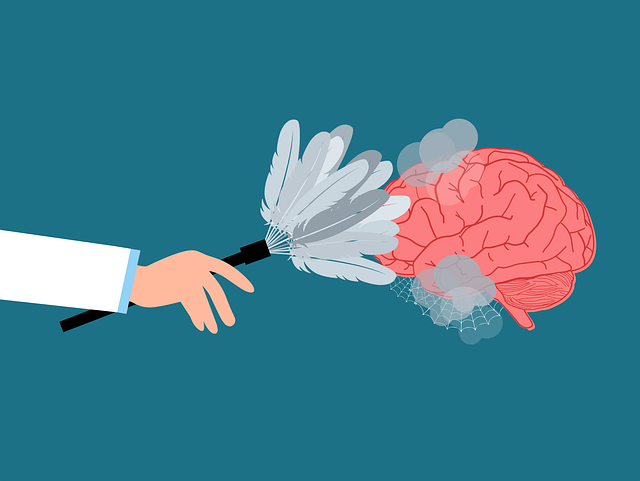Trauma significantly impacts young adults' mental health and well-being, arising from threats to safety or existence due to abuse, neglect, violence, or accidents. Parker Young Adults Therapy (PYAT) offers specialized trauma support for young adults, integrating cognitive behavioral therapy, mindfulness, and other evidence-based practices in a safe space. Their comprehensive approach focuses on identity formation, resilience building, and personalized self-care routines to address unhealed traumas, resulting in improved emotional intelligence, conflict resolution skills, and enhanced quality of life.
Trauma, an insidious force, can profoundly impact young adults, shaping their present and future. In response, services like Parker Young Adults Therapy (PYAT) have emerged as vital anchors of support. This article delves into the multifaceted role of PYAT in addressing trauma among its younger demographic. We explore the profound effects of trauma, delve into therapeutic approaches, and uncover effective strategies for delivering compassionate care. By understanding these mechanisms, we empower ourselves to foster resilience and facilitate healing.
- Understanding Trauma and Its Impact on Young Adults
- The Role of Parker Young Adults Therapy in Support
- Identifying Signs and Symptoms of Unaddressed Trauma
- Effective Strategies for Providing Trauma-Informed Care
- Building Resiliency and Promoting Healing Through Therapy
Understanding Trauma and Its Impact on Young Adults

Trauma can profoundly affect young adults, shaping their mental health and overall well-being. It’s crucial to understand that trauma isn’t just a one-time event; it’s a response to a perceived threat to one’s safety or existence. This can stem from various sources like abuse, neglect, violence, or severe accidents, often leaving lasting effects on the brain and behavior. For Parker Young Adults Therapy clients, acknowledging and addressing these underlying issues is essential for healing.
The impact of trauma can manifest in numerous ways, including anxiety, depression, flashbacks, and even physical symptoms. Developing a robust self-care routine (Self-Care Routine Development for Better Mental Health) becomes pivotal in navigating these challenges. Self-care practices (Self-Care Practices), such as mindfulness, therapy, and building inner strength (Inner Strength Development), offer tools to manage trauma’s aftermath. Through tailored support, young adults can learn to process their experiences healthily, fostering resilience and a sense of empowerment.
The Role of Parker Young Adults Therapy in Support

Parker Young Adults Therapy plays a pivotal role in providing comprehensive trauma support services, catering specifically to the needs of young adults navigating complex emotional landscapes. This therapeutic approach recognizes the unique challenges faced by this demographic, often marked by identity formation and the aftermath of traumatic experiences. Through evidence-based practices, therapists at Parker YAT facilitate a safe space for individuals to process and heal from past traumas, fostering resilience and emotional intelligence.
The therapy model integrates various effective techniques, including cognitive behavioral therapy and mindfulness practices, to assist young adults in managing stress and anxiety stemming from traumatic events. By addressing underlying issues and promoting self-awareness, Parker Young Adults Therapy empowers its clients with tools to cope effectively, enhancing their overall mental health and well-being. This personalized approach resonates with the target audience, fostering a sense of understanding and encouraging long-term recovery.
Identifying Signs and Symptoms of Unaddressed Trauma

Unaddressed trauma can manifest in various ways, often going unnoticed or misunderstood. Recognizing signs and symptoms is a crucial step in providing effective support, especially for young adults navigating their mental health journey. Common indicators include persistent feelings of fear, anxiety, or flashbacks to traumatic events; avoidance behaviors, such as steering clear of situations or people that remind them of the trauma; and emotional regulation difficulties, like sudden mood swings or intense irritability.
At Parker Young Adults Therapy, we understand that these signs may be subtle and hard to identify. That’s why our approach focuses on empowering individuals to develop a strong self-care routine, integrating stress reduction methods into their daily lives. By learning healthy coping strategies, setting boundaries, and prioritizing depression prevention through proactive mental health management, our clients gain the tools needed to overcome trauma’s lasting effects.
Effective Strategies for Providing Trauma-Informed Care

Effective Strategies for Providing Trauma-Informed Care
At Parker Young Adults Therapy, we believe that trauma-informed care is a multifaceted approach that goes beyond simply treating symptoms. It involves creating safe and supportive environments, fostering emotional healing processes, and empowering individuals with conflict resolution techniques. By integrating these strategies, therapists can help clients develop resilience and reclaim their lives after traumatic experiences.
This approach prioritizes understanding the client’s past, present, and future experiences within their social and cultural contexts. It encourages the development of emotional intelligence, enabling individuals to recognize and manage their emotions effectively. Through this process, clients are able to process their trauma in a safe and supportive manner, leading to lasting recovery and improved quality of life.
Building Resiliency and Promoting Healing Through Therapy

Building resiliency and promoting healing through therapy is a cornerstone of effective trauma support services. At Parker Young Adults Therapy, we understand that every individual’s journey to recovery is unique. Our specialized programs are designed to empower clients with the tools they need to navigate life’s challenges and develop lasting coping mechanisms. Through evidence-based practices such as cognitive behavioral therapy (CBT) and eye movement desensitization and reprocessing (EMDR), we help young adults process traumatic experiences and cultivate emotional healing processes.
By integrating mental health education programs, we foster a deeper understanding of trauma and its impact on the mind and body. This knowledge equips individuals with the confidence boosting tools necessary to confront and overcome adversity. Our therapeutic approaches are tailored to address not just the symptoms but also the underlying causes of trauma, enabling clients to build resilience and lead fulfilling lives.
Trauma support services, particularly tailored for young adults through initiatives like Parker Young Adults Therapy, play a pivotal role in fostering resilience and promoting healing. By understanding the profound impact of trauma on this demographic and implementing effective, trauma-informed care strategies, we can help individuals overcome their struggles. Identifying signs and symptoms early is crucial, enabling us to offer timely interventions that empower young adults to navigate life’s challenges more effectively. Through dedicated therapy approaches, it becomes possible to build resilience, ensuring a brighter future for those who have experienced trauma.














